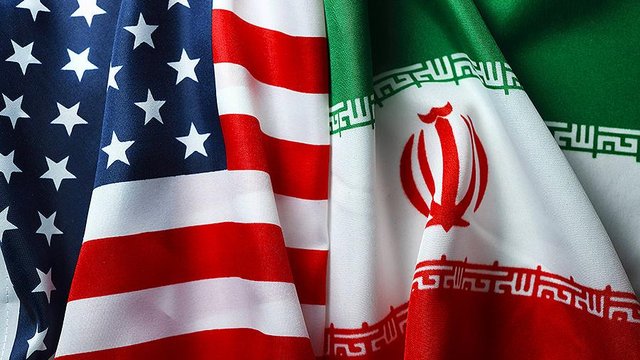Trump’s diplomatic game: will the US resume nuclear talks with Iran?
7 March 18:11
President Donald Trump has sent a letter to Iran’s Supreme Leader Ayatollah Ali Khamenei, calling on Tehran to join negotiations aimed at preventing the development of nuclear weapons. This was reported by "Komersant Ukrainian" with reference to AP.
Speaking on this topic, the US leader emphasized that diplomacy would be more useful for Iran and reiterated his desire for the country to prosper without seeking nuclear weapons.
“I have written a letter to them: I hope you will negotiate, because if we have to intervene militarily, it would be terrible,” Trump said.
Recounting the content of the letter sent to the Iranian leader, the US president said the following:
“I would prefer to negotiate a deal. I’m not sure everybody agrees with me, but we can get a deal that’s as good as if you won militarily,” Trump added.
How the Iranian leader views the prospect of negotiations with the United States
It is worth noting that in early February 2025, Ayatollah Khamenei rejected the idea of negotiations with the United States, calling it unreasonable and dishonorable. He cited past warnings about the risks of an alliance with the United States, suggesting that such alliances could lead to betrayal.
“There should be no negotiations with such a government because it is neither wise, nor prudent, nor worthy,” Khamenei said.
Trump’s letter to the Ayatollah of Iran: under what circumstances was it written?
The US President wrote the letter to the Iranian leader at a time when Jerusalem and Washington have warned that they will never allow Iran to obtain nuclear weapons, leading to fears of a military confrontation as Tehran enriches uranium to a level close to weapons-grade, a level of purity that can only be achieved by countries with nuclear weapons.
According to experts, this initiative of the US leader marks a significant shift in the country’s foreign policy, given Trump’s withdrawal in 2018 from the Joint Comprehensive Plan of Action (JCPOA), commonly known as the Iran nuclear deal. At the time, he criticized the deal as too soft on Iran. The current diplomatic overture aims to address concerns about Iran’s advancing nuclear program and its impact on the region.
Against this backdrop, Russia has offered to mediate between the United States and Iran. Russian officials have been holding talks with both countries to promote a peaceful resolution of the nuclear issue. This includes recent meetings between Russian Foreign Minister Sergey Lavrov and Iranian diplomats.
The international community is closely monitoring these interactions, as their outcomes could have a significant impact on global security and diplomatic relations. While the US administration is in favor of resuming negotiations, Iran’s leadership remains skeptical, creating uncertainty about the way forward to break the nuclear deadlock.
What is known about Iran’s nuclear program
Iran’s nuclear program has been in the center of international attention for decades, going through various stages of development and causing concern around the world.
Iran’s nuclear ambitions, launched in the 1950s as part of the U.S. Atoms for Peace program, were initially aimed at peaceful scientific research. The Tehran Nuclear Research Center was established, and Iran received enriched uranium and plutonium from the United States for research purposes. In 1970, Iran ratified the Treaty on the Non-Proliferation of Nuclear Weapons (NPT), committing itself to the peaceful use of nuclear technology under the supervision of the International Atomic Energy Agency (IAEA).
The Iranian Revolution of 1979 led to a temporary suspension of nuclear activities, but by the late 1980s Iran had resumed its program, receiving assistance from countries such as China, Pakistan, and Russia. The secretive nature of these developments raised suspicions of potential weapons efforts. In 2002, the existence of undeclared facilities at Arak and Natanz was revealed, increasing international attention.
Years of negotiations culminated in the 2015 Joint Comprehensive Plan of Action (JCPOA) between Iran and the P5+1 countries. This agreement imposed restrictions on Iran’s nuclear activities in exchange for sanctions relief. However, in 2018, the United States unilaterally withdrew from the agreement, reimposing sanctions and prompting Iran to gradually reduce its compliance.
Iran’s Nuclear Program in the Light of Recent Developments
By 2023, Iran reportedly enriched uranium to a level close to weapons-grade, significantly reducing the breakout time needed to produce nuclear weapons. Facilities such as Fordow, deeply buried in the mountains, have played a central role in this advancement, and the installation of modern centrifuges has expanded enrichment capabilities.
The trajectory of Iran’s nuclear program remains a critical issue, and ongoing diplomatic efforts are aimed at balancing regional stability with nonproliferation goals.









